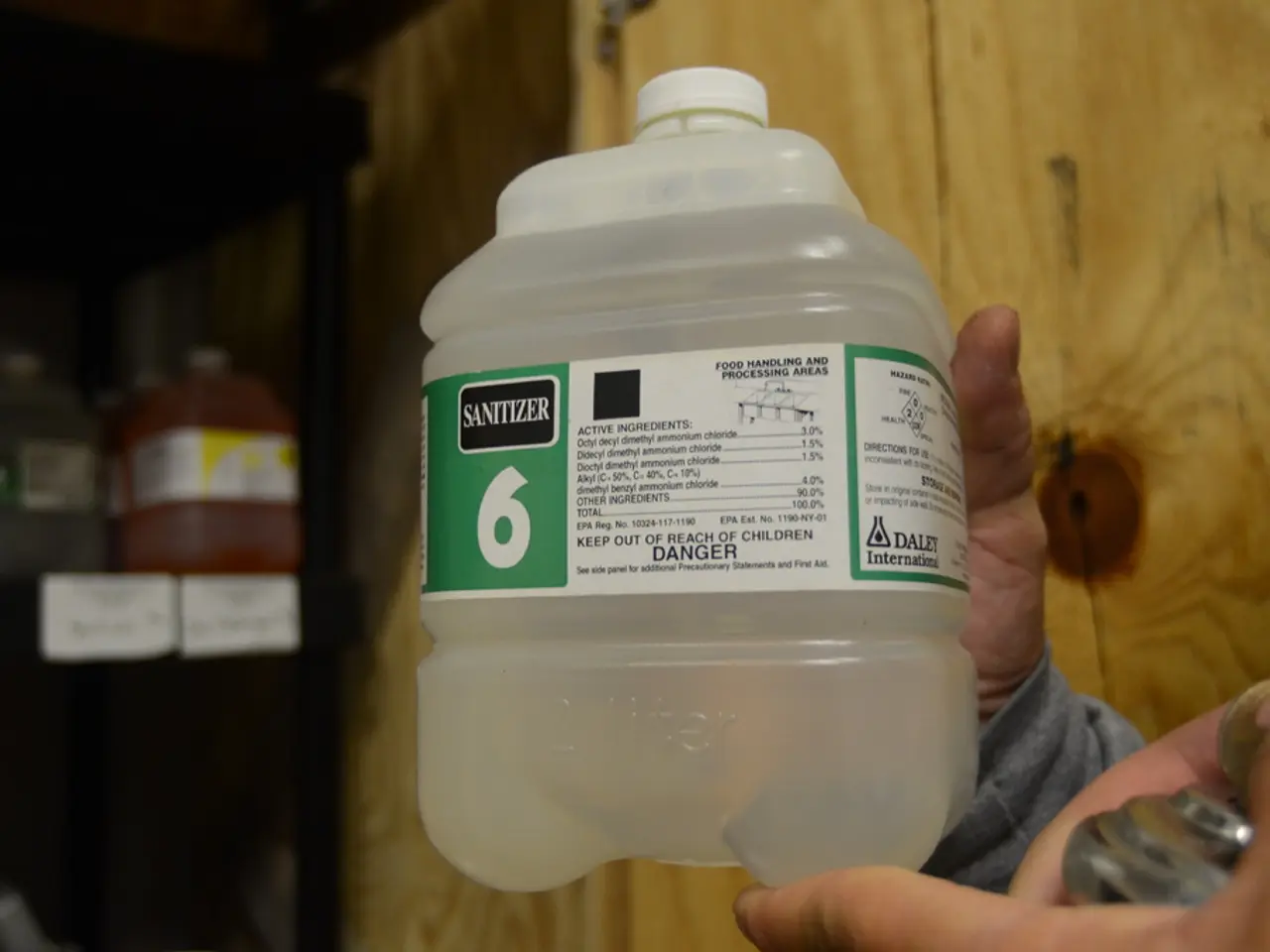Trichinosis: Causes, signs, and remedies explained
In the world of foodborne illnesses, one that often goes unnoticed is Trichinosis, also known as trichinellosis. This parasitic infection is contracted by consuming undercooked meat, particularly pork, contaminated with larvae of the Trichinella spiralis species [1].
To prevent trichinosis, adhering to certain food safety practices is crucial. Cooking meat thoroughly to an internal temperature of at least 71°C (160°F) effectively kills the parasite [2][3]. It's also essential to avoid consuming raw or undercooked meat, particularly pork and wild game meats, which are common sources of Trichinella infection [2].
Freezing meat at -15°C (5°F) for a specified duration can also inactivate the parasite in some meat types, although freezing may be less effective for certain Trichinella species found in wild game [3]. Safe meat handling practices, regular meat inspection, and educating consumers, hunters, and those involved in meat processing about hygienic handling and preparation further reduce the risk [3].
Diagnosing trichinosis can be challenging, as symptoms are similar to those of other intestinal disorders and may be mistaken for the flu or common illnesses. However, doctors can detect antibodies against the parasite in a blood test and may find Trichinella in muscle biopsy samples in severe cases [4].
In severe cases, trichinosis can cause a host of complications, including heart failure, central nervous system failure, inflamed lungs, inflammation of the brain, inflammation of the heart, low blood potassium, blood vessel obstruction, adrenal gland insufficiency, and long-term complications such as generalized muscle pain, eye symptoms, and neuropathy [4].
Fortunately, treatment for trichinosis involves prescription medication, often antihelminthic drugs like albendazole or mebendazole [5]. In the United States, trichinosis is now fairly rare due to increased awareness, improvements in pig-raising practices, and home freezing of pork meat [6]. During 2011-2015, the Centers for Disease Control and Prevention (CDC) reported an average of 5 cases per year in the U.S. [6].
However, it's important to note that trichinosis can occur in any part of the world due to the global distribution of pork meat. Additionally, certain groups, including adults aged 65 years and older, children younger than 5 years, people with a weakened immune system, pregnant women, and even pets like dogs, are at a higher risk of trichinosis [7].
So, to ensure your safety and the safety of your loved ones, always cook meat thoroughly, avoid raw or undercooked meat, particularly pork and wild game, and follow the CDC's guidelines for handling and freezing meat. By doing so, we can collectively reduce transmission risk to humans and animals.
- In the realm of health and wellness, knowledge about infectious diseases like trichinosis, or trichinellosis, is vital, as it can be contracted by consuming undercooked meat, primarily pork, contaminated with the Trichinella spiralis species [1].
- Maintaining a diet that excludes raw or undercooked meats, particularly pork and wild game meats, is essential for preventing trichinosis [2]. Additionally, adhering to good nutrition practices, such as thoroughly cooking meat to an internal temperature of at least 71°C (160°F), further reduces the risk [2][3].
- Other parasites and medical-conditions can cause symptoms similar to trichinosis, making diagnosis challenging for doctors. However, blood tests can detect antibodies against the parasite, and muscle biopsy samples may reveal Trichinella in severe cases [4].
- Scienctific advancements and improvements in medical-conditions, such as the availability of prescription medications like albendazole or mebendazole, have made trichinosis treatable [5]. Yet, it remains crucial to be mindful of proper nutrition, particularly when consuming meat, considering the potential risks posed by various parasites and neurological-disorders.




